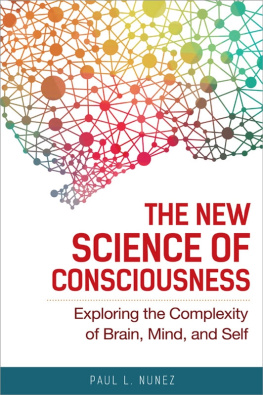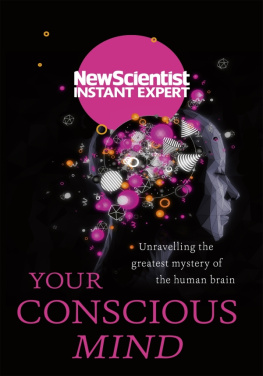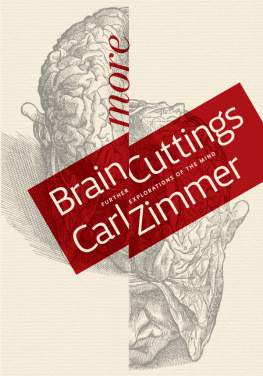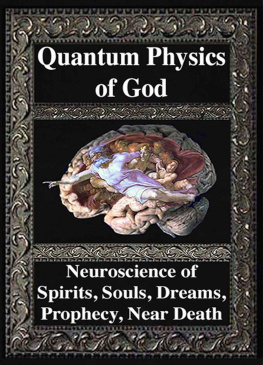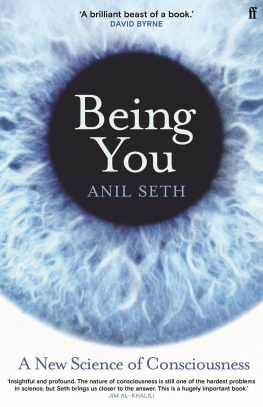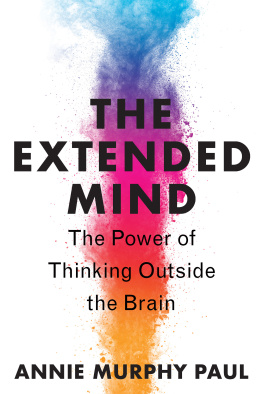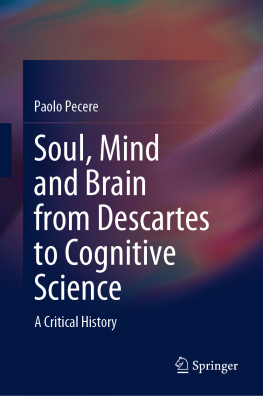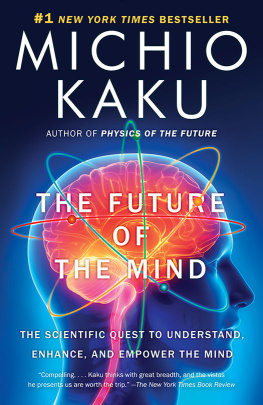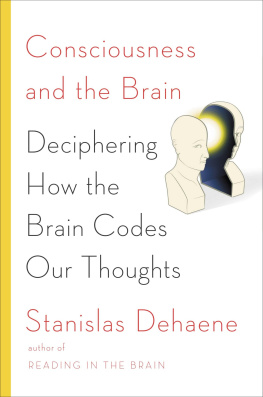Paul L. Nunez - The New Science of Consciousness: Exploring the Complexity of Brain, Mind, and Self
Here you can read online Paul L. Nunez - The New Science of Consciousness: Exploring the Complexity of Brain, Mind, and Self full text of the book (entire story) in english for free. Download pdf and epub, get meaning, cover and reviews about this ebook. City: Amherst, NY, year: 0, publisher: Prometheus Books, genre: Science. Description of the work, (preface) as well as reviews are available. Best literature library LitArk.com created for fans of good reading and offers a wide selection of genres:
Romance novel
Science fiction
Adventure
Detective
Science
History
Home and family
Prose
Art
Politics
Computer
Non-fiction
Religion
Business
Children
Humor
Choose a favorite category and find really read worthwhile books. Enjoy immersion in the world of imagination, feel the emotions of the characters or learn something new for yourself, make an fascinating discovery.
- Book:The New Science of Consciousness: Exploring the Complexity of Brain, Mind, and Self
- Author:
- Publisher:Prometheus Books
- Genre:
- Year:0
- City:Amherst, NY
- Rating:3 / 5
- Favourites:Add to favourites
- Your mark:
- 60
- 1
- 2
- 3
- 4
- 5
The New Science of Consciousness: Exploring the Complexity of Brain, Mind, and Self: summary, description and annotation
We offer to read an annotation, description, summary or preface (depends on what the author of the book "The New Science of Consciousness: Exploring the Complexity of Brain, Mind, and Self" wrote himself). If you haven't found the necessary information about the book — write in the comments, we will try to find it.
Paul L. Nunez: author's other books
Who wrote The New Science of Consciousness: Exploring the Complexity of Brain, Mind, and Self? Find out the surname, the name of the author of the book and a list of all author's works by series.
The New Science of Consciousness: Exploring the Complexity of Brain, Mind, and Self — read online for free the complete book (whole text) full work
Below is the text of the book, divided by pages. System saving the place of the last page read, allows you to conveniently read the book "The New Science of Consciousness: Exploring the Complexity of Brain, Mind, and Self" online for free, without having to search again every time where you left off. Put a bookmark, and you can go to the page where you finished reading at any time.
Font size:
Interval:
Bookmark:

Published 2016 by Prometheus Books
The New Science of Consciousness: Exploring the Complexity of Brain, Mind, and Self. Copyright 2016 by Paul L. Nunez. All rights reserved. No part of this publication may be reproduced, stored in a retrieval system, or transmitted in any form or by any means, digital, electronic, mechanical, photocopying, recording, or otherwise, or conveyed via the Internet or a website without prior written permission of the publisher, except in the case of brief quotations embodied in critical articles and reviews.
Unless otherwise indicated, all images are by the author.
Trademarked names appear throughout this book. Prometheus Books recognizes all registered trademarks, trademarks, and service marks mentioned in the text.
The Internet addresses listed in the text were accurate at the time of publication. The inclusion of a website does not indicate an endorsement by the author(s) or by Prometheus Books, and Prometheus Books does not guarantee the accuracy of the information presented at these sites.
Cover design by Jeff Schaller
Cover design Prometheus Books
Cover image iStockphoto.com/airiesummer
Inquiries should be addressed to
Prometheus Books
59 John Glenn Drive
Amherst, New York 14228
VOICE: 7166910133
FAX: 7166910137
WWW.PROMETHEUSBOOKS.COM
20 19 18 17 16 5 4 3 2 1
Library of Congress Cataloging-in-Publication Data
Names: Nunez, Paul L.
Title: The new science of consciousness : exploring the complexity of brain, mind, and self / by Paul L. Nunez, Ph.D.
Description: Amherst, New York : Prometheus Books, 2016. | Includes bibliographical references and index.
Identifiers: LCCN 2016017939 (print) | LCCN 2016019620 (ebook) | ISBN 9781633882195 (hardcover) | ISBN 9781633882201 (ebook)
Subjects: LCSH: ConsciousnessPopular works. | BrainPopular works. | NeurosciencesPopular works.
Classification: LCC QP411 .N856 2016 (print) | LCC QP411 (ebook) | DDC 612.8dc23
LC record available at https://lccn.loc.gov/2016017939
Printed in the United States of America

This book explains, in layman's language, a new approach to the science of consciousness based on collaborations between neuroscientists and complexity scientists. The new science goes well beyond traditional cognitive science and simple networks, which provide the usual focus of artificial-intelligence research. The new partnerships involve many subfields of neuroscience, physics, psychology, psychiatry, philosophy, and more. This cross-disciplinary approach aims to reveal fresh insights into the major unsolved challenge of our age: the origins of awareness, especially our self-awareness.
What causes autism, schizophrenia, and Alzheimer's disease? How does our unconscious influence our actions? How does human consciousness differ from the apparent consciousness of lower animals? Do we enjoy genuine free will or are we slaves to unconscious systems? Are conscious computers theoretically possible? Above all, how can the interactions of a hundred billion nerve cells lead to the mysterious condition called consciousness? To tell this compelling story, I recruit a number of analogues and metaphors, showing how brain behavior can be compared to the collective behaviors of other large-scale systems. The world human social system provides just one example in which novel features like wars and economic depressions emerge, features that are absent from the small parts. Emergent systems of many kinds interact and form relationships with lower levels of organization and the surrounding environment, thereby suggesting compelling models for complex brain functions. These studies raise the Big Questiondo minds emerge from brains? Or is something more involved?
Since my early career move from engineering and theoretical physics to neuroscience, my professional life has focused on the easy problem of consciousnessexploring the relationships between brain and mind activity, the so-called signatures of consciousness. These experimental measures of brain activity, like electroencephalography (EEG) and functional magnetic resonance imaging (fMRI), are critically important to brain science. By contrast, the hard problem, the how and why of our conscious awareness, presents a much more profound puzzle. Scientists and philosophers disagree as to whether the hard problem can ever be solved; some even deny that such problem exists. Like many scientists and nonscientists alike, I have a long-running fascination with the mystery of consciousness, which motivates my interests in several related scientific fields.
My earlier ventures into consciousness study resulted in Brain, Mind, and the Structure of Reality, published in 2010. While mostly well received, some readers found the material a bit too technical for their tastes. This new book extends the ideas presented in 2010 but, at the same time, aims to serve a wider readership by substantially softening the technical content and mostly avoiding mathematics. Not a single equation occupies these pages, excepting a few in the endnotes. Readers of the earlier book will note some duplication, aimed to ensure that even those unfamiliar with brain science can safely begin here. My approach rests on the following conceptual framework that enjoys full consistency with mainstream science: (1) Brains and minds are correlated; that is, many consciousness signatures have been discovered. (2) Brains are genuine complex systems; more complex than most other living things. (3) Brains, like other complex systems, consist of nested hierarchies of subsystems that operate at different levels of organization (spatial scales). (4) Consistent with this picture, signatures of consciousness are observed over a wide range of scales. (5) Multiple conscious, unconscious, and semi-conscious entities coexist within each human brain. (6) Interactions between these subsystems contribute substantially to making the human brain human.
This framework supports an idea labeled the multiscale conjecture, which posits that consciousness manifests at multiple levels of brain organization, and no single scale need be special. Thus, the various dynamic patterns of information observed as consciousness signatures, as measured with different scientific methods, may all contribute to the mind. In this view, consciousness is rooted in the dynamic patterns of multiple interacting scales. Although fully consistent with mainstream science, the multiscale conjecture allows room for both materialistic and nonmaterialistic interpretations. Hence, I argue that materialism and dualism are not as distinct as many think. Some aspects of dualism are shown to be fully consistent with modern science.
The consciousness challenge is approached with questions about a category beyond ordinary information, that is, ultra-information, defined broadly to include ordinary information, hidden physical processes, and consciousness. Thoughts, emotions, self-awareness, memory, and the contents of the unconscious are, by definition, categories of ultra-information whether or not these mental processes also involve ordinary information. This idea may sound rather abstract, but it is consistent with modern physics, which tells us that some kinds of information are fundamentally unknowable. For example, all interpretations of quantum mechanics rely on the existence of some sort of hidden reality or shadow world that we can never observe directly, but that nevertheless influences the familiar world of our senses. By definition, this hidden world contains ultra-information.
Next pageFont size:
Interval:
Bookmark:
Similar books «The New Science of Consciousness: Exploring the Complexity of Brain, Mind, and Self»
Look at similar books to The New Science of Consciousness: Exploring the Complexity of Brain, Mind, and Self. We have selected literature similar in name and meaning in the hope of providing readers with more options to find new, interesting, not yet read works.
Discussion, reviews of the book The New Science of Consciousness: Exploring the Complexity of Brain, Mind, and Self and just readers' own opinions. Leave your comments, write what you think about the work, its meaning or the main characters. Specify what exactly you liked and what you didn't like, and why you think so.

